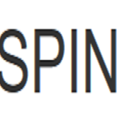To date, the widely adopted way to perform fixation collection in panoptic video is based on a head-mounted display (HMD), where users' fixations are collected while wearing an HMD to explore the given panoptic scene freely. However, this widely-used data collection method is insufficient for training deep models to accurately predict which regions in a given panoptic are most important when it contains intermittent salient events. The main reason is that there always exist "blind zooms" when using HMD to collect fixations since the users cannot keep spinning their heads to explore the entire panoptic scene all the time. Consequently, the collected fixations tend to be trapped in some local views, leaving the remaining areas to be the "blind zooms". Therefore, fixation data collected using HMD-based methods that accumulate local views cannot accurately represent the overall global importance - the main purpose of fixations - of complex panoptic scenes. To conquer, this paper introduces the auxiliary window with a dynamic blurring (WinDB) fixation collection approach for panoptic video, which doesn't need HMD and is able to well reflect the regional-wise importance degree. Using our WinDB approach, we have released a new PanopticVideo-300 dataset, containing 300 panoptic clips covering over 225 categories. Specifically, since using WinDB to collect fixations is blind zoom free, there exists frequent and intensive "fixation shifting" - a very special phenomenon that has long been overlooked by the previous research - in our new set. Thus, we present an effective fixation shifting network (FishNet) to conquer it. All these new fixation collection tool, dataset, and network could be very potential to open a new age for fixation-related research and applications in 360o environments.
翻译:暂无翻译



